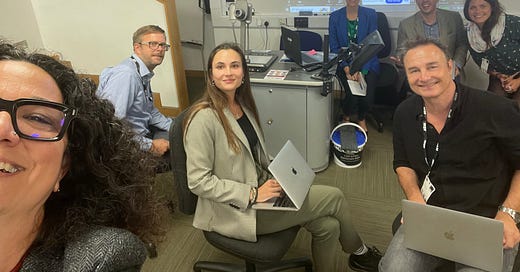Summary by Evangelia Petridou and Annemieke van den Dool
During the ECPR General Conference in August 2024, Evangelia Petridou moderated a roundtable discussion in which panellists and the audience reflected on four decades of MSF studies and identified potential directions for future research. Participants included Nikolaos Zahariadis, Vilém Novotný, Theofanis Exadaktylos, Nils Bandelow, Johanna Hornung, Ilana Schröder, and Annemieke van den Dool. What follows is a summary of the discussion.
Looking back, what have we learned?
While the MSF was originally developed to examine agenda setting in the US, the framework is nowadays also used in other contexts, including nondemocracies. As of 2024, approximately 100 English-language journal articles use the MSF to examine policy processes in 27 different authoritarian countries. The three authoritarian countries with most applications are China, Iran, and Russia and the most popular policy areas are health and environment.
In contrast, the EU policymaking context is a versatile context for MSF. The EU is present in every stage of the policy process and MSF has the tools to analyze the interplay of multi-level governance, domestic and transnational policy groups, individual member states and EU presidencies, in the agenda setting, policy formulation, decision-making, implementation, and evaluation stages.
Looking ahead, what should we do?
Participants explored several avenues for community and research development, including but not limited to the following ideas:
Build a more integrated community
Be aware of the challenges that researchers face when working with MSF: time and tempo of the policy phenomenon; the subfields and frameworks it links to in terms of ontology and epistemology, and the danger of telling a story rather than rigorously constructing causal statements.
Remain open to different (methodological) approaches
Foster transparency about and justification of research design and methodology
Develop a detailed checklist of when the MSF is appropriate to use and when it is not, based on whether its basic assumptions are met
Standardise definition and measurement of common terms, develop methods workshop
Synthesise lessons learned
Test existing hypotheses
Use quantitative approaches to complement small N studies
Make the framework more relevant to students and practitioners
Organise special issues, each focusing on a specific MSF aspect in different countries





